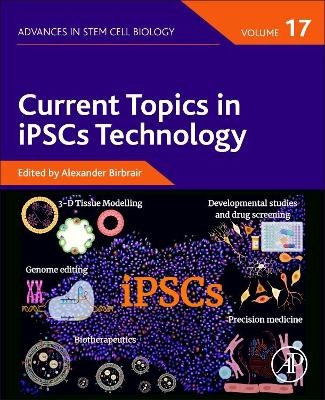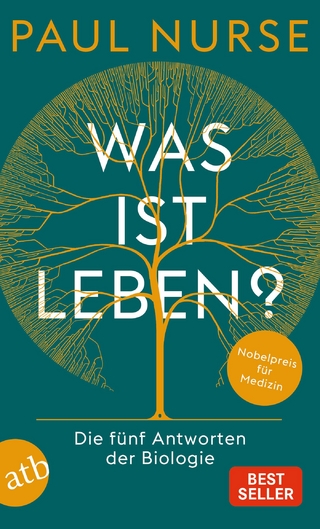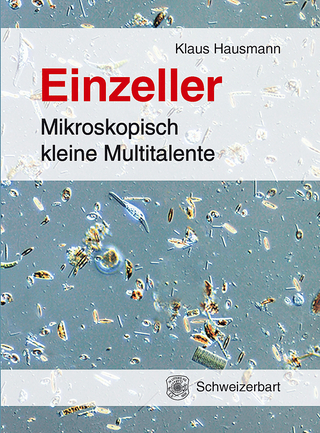
Current Topics in iPSCs Technology
Academic Press Inc (Verlag)
978-0-323-99892-5 (ISBN)
Dr. Alexander Birbrair received his bachelor’s biomedical degree from Santa Cruz State University in Brazil. He completed his PhD in Neuroscience, in the field of stem cell biology, at the Wake Forest School of Medicine under the mentorship of Osvaldo Delbono. Then, he joined as a postdoc in stem cell biology at Paul Frenette’s laboratory at Albert Einstein School of Medicine in New York. In 2016, he was appointed faculty at Federal University of Minas Gerais in Brazil, where he started his own lab. His laboratory is interested in understanding how the cellular components of different tissues function and control disease progression. His group explores the roles of specific cell populations in the tissue microenvironment by using state-of-the-art techniques. His research is funded by the Serrapilheira Institute, CNPq, CAPES, and FAPEMIG. In 2018, Alexander was elected affiliate member of the Brazilian Academy of Sciences (ABC), and, in 2019, he was elected member of the Global Young Academy (GYA), and in 2021, he was elected affiliate member of The World Academy of Sciences (TWAS). He is the Founding Editor and Editor-in-Chief of Current Tissue Microenvironment Reports, and Associate Editor of Molecular Biotechnology. Alexander also serves in the editorial board of several other international journals: Stem Cell Reviews and Reports, Stem Cell Research, Stem Cells and Development, and Histology and Histopathology.
1. Regulatory and Policy Considerations in iPSC Research 2. HiPSCs for Population Genetics 3. Using Human Induced Pluripotent Stem Cells to Advance Personalized/Precision Medicine 4. hiPSC disease modeling with 3D organoids: Bioengineering perspective 5. The Differentiation of Embryonic Stem Cells and Induced Pluripotent Stem Cells into Airway and Alveolar Epithelial Cells 6. Transplantation of iPSC-derived human kidney organoids 7. An update on clinical applications of iPSCs from a genomic point of view 8. DNA Damage and Replication in Induced Pluripotent Stem Cells 9. Epigenetic modifications in induced pluripotent stem cells to boost myogenic commitment 10. Applications for Induced Pluripotent Stem Cells (iPSC) in Reproductive Medicine 11. iPSCs in Insulin Resistance, Type 2 Diabetes and the Metabolic Syndrome 12. Induced pluripotent stem cells for cystic fibrosis 13. Exploring 15q13.3 Copy Number Variants in iPSCs 14. Human induced pluripotent stem cells for modeling Brugada syndrome 15. iPSCs for Erythromycin Arrhythmogenicity Testing 16. Therapeutic Potential of Induced Pluripotent Stem Cell derived Extracellular Vesicles: Quo Vadis? Terra Incognito 17. Proteomic Approach for Creation of the Protein Marker Panels to Control for Quality of Human Induced Pluripotent Stem Cells (hiPSCs) 18. Application of induced pluripotent stem cells in tissue engineering 19. Application of iPSC-derived secretome in regenerative medicine 20. iPSCs and toxicology: predictive tool for present and future 21. Rejuvenation through iPSCs and reprogramming in vivo and in vitro
| Erscheinungsdatum | 28.01.2022 |
|---|---|
| Reihe/Serie | Advances in Stem Cell Biology |
| Zusatzinfo | 60 illustrations (40 in full color); Illustrations |
| Verlagsort | Oxford |
| Sprache | englisch |
| Maße | 191 x 235 mm |
| Gewicht | 1340 g |
| Themenwelt | Naturwissenschaften ► Biologie ► Zellbiologie |
| ISBN-10 | 0-323-99892-5 / 0323998925 |
| ISBN-13 | 978-0-323-99892-5 / 9780323998925 |
| Zustand | Neuware |
| Haben Sie eine Frage zum Produkt? |
aus dem Bereich


